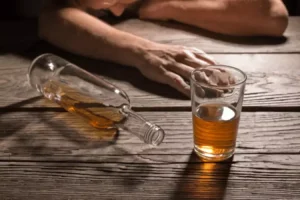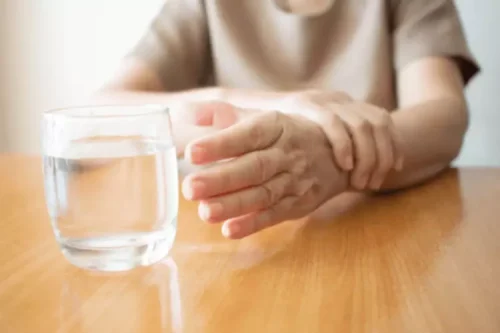63 Alcohol Relapse Statistics & Facts

These medications should be used in conjunction with therapy and other recovery strategies. After the excitement and anticipation of the holiday season is over, it’s common to feel sad, disappointed, or a bit down. Get back to your normal routines as quickly as possible and realize that a sudden decrease in social interaction may bring conflicting emotions. Refer to your recovery plan and use these tools as necessary as part of your self-care routine.

Holiday-Specific Risk Factors and Protective Factors
Discover how inpatient drug rehab in Brooklyn customizes treatment lengths, typically days, to meet individual needs and build a strong foundation for recovery. Managing your emotions and communicating your boundaries is key to staying calm and preventing a potential relapse. Emotional flooding occurs when you’re upset and can make you feel overwhelmed. One of the most effective ways to cope with holiday stress is planning ahead. Set aside dates for visiting family and friends, baking, what percentage of alcoholics relapse shopping, and other holiday-related activities. Making lists can help you remain organized and prevent the anxiety of last-minute scrambling.
Get FREE Confidential Advice About Rehab and Relapse

Once you get through the season, take some time to review which coping strategies worked well over the holidays and which didn’t. Make any adjustments needed and establish your strategies for the future to keep you on the path to recovery. Perhaps journal about your thoughts, feelings, and experiences so you can review them in planning ahead for the next year.
- The Grove Editorial Team is committed to educating, supporting, and empowering individuals and families on their journey toward a healthier, substance-free life.
- Discover the impact alcohol has on children living with a parent or caregiver with alcohol use disorder.
- But in a pattern researchers say is common, Mable-Jones’ illness eventually eased.
- However, compared to untreated individuals with active alcohol use disorders, untreated remitted individuals are older and more likely to be women, married and employed and have a later onset of alcohol problems 15-17.
Key Statistics on Relapse Rates

Eddie said their research suggests more needs to be done to keep people alive while the healing process works. “They end up achieving things they wouldn’t have achieved if they hadn’t gone through the hell of addiction,” Eddie said. Meanwhile those with more financial resources or milder forms of addiction often heal faster. He was also able to convince his insurance company to pay for longer-term treatment. Similarly, the roughly 95,000 deaths each year in the U.S. attributed to alcohol represent a fraction of high-risk drinkers.
- These individuals recognized that they had alcohol-related problems and initiated help-seeking, as reflected by an initial contact with the alcoholism treatment system via an Information and Referral (I&R) center or detoxification program.
- Their collective expertise shines through in each article, offering readers valuable guidance, the latest in addiction science, and inspiring stories of healing and transformation.
- Some research has found that 40% to 60% of people dealing with substance abuse disorders relapse within a year.
- Society seems to embrace seasonal binge drinking, making it even harder to steer clear of alcohol-related triggers at social gatherings.
- It should not be used in place of the advice of your physician or other qualified healthcare provider.
- Here, we focus separately on groups of individuals who did versus those who did not obtain help and examine baseline predictors of 3-year remission and potential differential predictors of remission in these two groups.
Graduate School of Addiction Studies

Relapse is a common stumbling block during the recovery process and does not mean that you should give up on becoming sober. American Addiction Centers (AAC) is committed to delivering original, truthful, accurate, unbiased, and medically current information. Engaging in high-risk behaviors or situations, such as attending parties where substances are present, can trigger relapse. Neglecting self-care activities, such as regular exercise, healthy eating, and sufficient sleep, can also increase the risk of relapse.
- In addition, we examined interactions between the help status and relapse status groups.
- Experts thinkthis occurs because the neural circuits involved in stress and mood are the same circuits involved in the brain’s reward system.
1, remitted individuals with no risk factors had a 22% likelihood of relapse. The likelihood of relapse rose to 45% for individuals with one risk factor, 70% for individuals with two risk factors and 86% for individuals what is alcoholism with three or four risk factors. Hypertension and asthma both have relapse rates of between 50% to 70% for example, yet treatment for these illnesses are generally deemed to have been successful without accounting for potential future relapses. Addiction treatments, on the other hand, can be seen as having failed if a relapse occurs.
It’s very important to prioritize your health and be mindful of your recovery coping mechanisms. Sometimes it is necessary to miss out on a holiday function to attend a counseling session or group meeting. Those who truly care about your well-being will not mind you skipping a holiday meal to focus on your mental health.
Alcohol Relapse by Race
Even after being sober for years, the potential for an alcohol relapse is always possible. However, just because a relapse occurs doesn’t mean someone has failed recovery. Relapse can be part of the recovery process, and it can strengthen someone’s dedication to long-term sobriety if it occurs and is properly handled. 70% of individuals struggling with alcoholism will relapse at some point, however, relapse rates decline the longer someone stays sober. Before someone relapses on drugs or alcohol, there are typically many warning signs. Identifying these warning signs early and utilizing positive coping mechanisms can decrease your risk of relapse.
How Many People Relapse After 1 Year Sober?
For everyone, sober or not, personal growth is a constant, ongoing, transformative experience that contributes to self-realization and continued health and wellness. At gatherings, try to encourage sober activities that will keep your loved one’s mind off of drinking and substance use. Although you can be their advocate and offer support, you must also learn to respect their independence and ability to make their own decisions.

